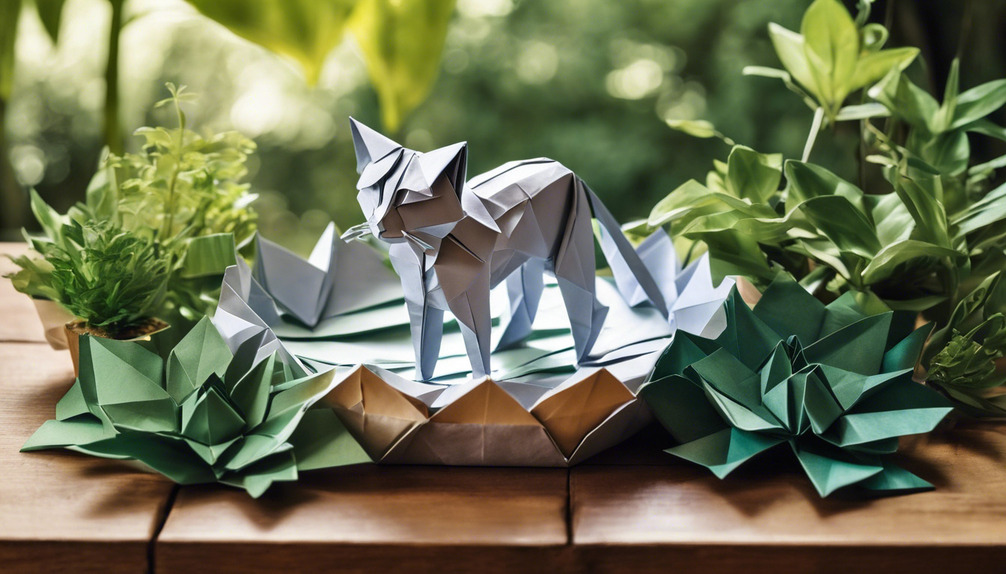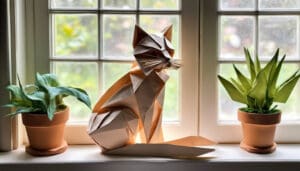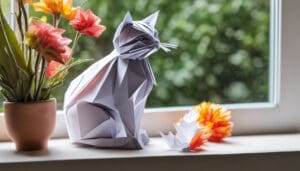As your cat gets older, it’s important to make sure they’re drinking enough water. Hydration becomes a critical part of their care. Sometimes, you might notice that they’re not drinking as much water as they used to, or they show signs of being dehydrated.
In such cases, using hydration aids can greatly help. It’s essential to understand why these aids are beneficial for older cats, as they can significantly improve their health and overall well-being.
Key Takeaways
- Aging cats face challenges in maintaining hydration due to decreased sense of thirst and changes in body weight and muscle mass.
- Proper hydration is important for senior cats as it supports bodily functions, helps manage weight, prevents chronic kidney disease, and supports immune function.
- There are various types of hydration aids available for senior cats, including water additives, hydration supplements, liquid diets, subcutaneous fluids, and flavored broths/tuna juice.
- Administering hydration aids requires monitoring water intake, gradually introducing the aid, keeping it fresh and available, regularly consulting with a veterinarian, and supporting the hydration needs of aging cats for their comfort and health.
Understanding Senior Cats’ Hydration Needs
As your cat enters their senior years, it’s essential to understand their unique hydration needs to ensure their well-being and comfort.
Senior cats often face challenges in maintaining adequate hydration due to the natural aging process. Proper hydration is essential for their overall health and well-being.
With age, cats may become less efficient at conserving water and may also have a decreased sense of thirst. This can lead to dehydration, which can impact their kidney function, urinary tract health, and even their dental health.
It’s important to be mindful of your senior cat’s water intake and consider consulting a veterinary professional to discuss hydration aids that can support their specific needs.
As cats age, changes in body weight and muscle mass can affect their hydration requirements. Understanding and addressing these hydration needs is vital in ensuring that your aging cat remains comfortable and healthy throughout their geriatric years.
Taking proactive steps to support their hydration can also aid in preventing age-related conditions, such as kidney disease and diabetes.
Hydration Aids for Aging Cats
As your beloved cat grows older, their hydration needs may change. It’s natural to want to ensure they receive the best care possible, and hydration aids can play an important role in supporting their overall health and well-being.
Understanding the importance of hydration, learning about different types of hydration aids, and discovering helpful administration tips can make a significant difference in your aging cat’s comfort and vitality.
Importance of Hydration
Ensuring your aging cat remains well-hydrated is essential for their overall health and well-being. Hydration plays a pivotal role in maintaining your senior cat’s health status. Here’s why it’s so important:
- Body Function: Proper hydration supports various bodily functions, aiding in digestion, circulation, and temperature regulation.
- Weight Management: Adequate hydration helps manage your cat’s weight and can prevent obesity-related issues.
- Disease Prevention: Hydration aids in preventing chronic kidney disease and supports overall immune function, keeping your cat healthier for longer.
- Cellular Health: Hydration affects your cat’s health at a cellular level, influencing things like urine specific gravity and the effectiveness of subcutaneous fluids.
Types of Hydration Aids
To support your aging cat’s hydration, various aids such as water additives, hydration supplements, and liquid diets can play an important role in ensuring their well-being.
Water additives provide nutrient-enriched water to help with healthy hydration for aging cats.
Hydration supplements contain added nutritional osmolytes to support hydration and decrease urine specific gravity and osmolality.
Liquid diets, rich in antioxidants and omega-3 fatty acids, can increase total water intake and promote healthy hydration.
Subcutaneous fluids are administered under the skin to support hydration for cats with comorbidities like chronic kidney disease or diabetes mellitus.
Flavored broths and tuna juice are also options to encourage hydration.
If you notice weight changes or conditions associated with reduced ability to drink, consult your vet to discuss the best hydration aids for your aging cat.
Providing adequate hydration is essential for your cat’s quality of life and overall health care.
Administration Tips
When supporting your aging cat’s hydration with aids, it’s important to ensure the aid is administered as directed by the veterinarian to meet your cat’s specific needs. Here are some tips to help you effectively administer hydration aids to your aging cat:
- Monitor your cat’s water intake and adjust the hydration aid dosage as necessary to maintain optimal hydration levels.
- Introduce the hydration aid gradually to your cat’s diet to allow for proper acceptance and assimilation.
- Keep the hydration aid fresh and readily available to encourage regular consumption by your aging cat.
- Regularly consult with the veterinarian to assess the effectiveness of the hydration aid and make any necessary adjustments.
These tips will help you support your aging cat’s hydration and ensure they receive the care they need as their body undergoes changes.
Importance of Hydration for Senior Cats
As your cat grows older, their hydration needs become increasingly important for their overall health and well-being. Ensuring that your senior cat stays properly hydrated can help support their kidney function, urinary tract health, and digestion.
Adequate hydration also plays an essential role in maintaining the balance of electrolytes and aiding in the absorption of medications for your aging cat.
Senior Cat Hydration Needs
Understanding the importance of hydration for your senior cat is vital for maintaining their overall health and well-being. As your aging cat ages, their body undergoes changes that affect their hydration needs. Cats over 12 years require special attention to ensure they stay adequately hydrated.
Here’s why:
- Increased Frequency: Senior and geriatric cats often experience increased thirst and urination, making it Crucial to provide access to clean water at all times.
- Chronic Pain: Conditions such as arthritis can cause discomfort, making it essential for your cat to stay hydrated to alleviate any pain.
- Cognitive Dysfunction: Dehydration can exacerbate cognitive dysfunction in senior cats, emphasizing the need for proper hydration to support their mental acuity.
- Dental Disease: Older cats may have dental issues, which can affect their ability to drink water, requiring careful monitoring of their hydration levels to prevent further complications.
Ensuring your senior cat’s physical condition is supported through proper hydration is an essential aspect of their care.
Health Benefits of Hydration
Ensuring your senior cat stays properly hydrated is essential for supporting their overall health and well-being as they age. Elderly cats are prone to conditions common in older cats, such as reduced kidney function, weight loss, diabetes mellitus, and associated dehydration.
Adequate hydration aids in maintaining kidney function and urinary tract health, preventing constipation, supporting digestion, and maintaining electrolyte balance. Dehydration can exacerbate these conditions, leading to increased thirst and a higher risk of urinary tract infections.
Proper hydration also ensures that any necessary medications are properly absorbed, supporting your cat’s overall health. By prioritizing your cat’s hydration, you can help them avoid the discomfort and complications associated with dehydration and promote a healthier, more comfortable life in their senior years.
Hydration Aids for Cats
Help your senior cat maintain optimal health and well-being by prioritizing their hydration needs through simple and effective aids. As aging cats are prone to conditions like degenerative joint disease, muscle mass loss, and changes in energy requirements, ensuring they get enough fluids is essential.
Here are some ways to support their hydration:
- Multiple Water Bowls: Place water bowls in different areas of your home to make it easier for your cat to access water throughout the day.
- Flavored Broths or Tuna Juice: Adding a splash of flavor to your cat’s water can entice them to drink more, ensuring they stay hydrated.
- Interactive Fountains: Consider investing in a water fountain designed for cats, as the flowing water can encourage them to drink more.
- Moist Food: Incorporate wet food into your cat’s diet to increase their overall moisture intake, especially if they’ve tooth loss or periodontal disease.
Choosing the Right Hydration Supplements
Consider your aging cat’s individual hydration needs based on factors such as age, health status, and activity level when choosing the right hydration supplements. As cats enter their senior years, their bodies undergo changes in body composition, potential health issues, and cognitive decline.
It’s important to address their nutritional needs and ensure they stay adequately hydrated. When selecting hydration aids for aging cats, look for supplements with added electrolytes to support kidney function and urinary tract health.
Select products with palatable flavors like tuna or chicken broth to encourage consumption, if your cat has a reduced appetite. It’s also beneficial to choose supplements with added vitamins and minerals to support their overall health and hydration.
Consulting with a veterinary professional is essential to determine the most suitable hydration supplement for your aging cat’s specific needs. Their expertise and understanding of conditions common in older cats can provide invaluable guidance in ensuring your beloved pet receives the best care.
| Considerations | |
|---|---|
| Hydration Needs | Based on age, health status, and activity level |
| Electrolytes | Support kidney function and urinary tract health |
| Palatable Flavors | Encourage consumption, such as tuna or chicken broth |
| Added Vitamins & Minerals | Support overall health and hydration |
| Veterinary Consultation | Essential for determining the most suitable supplement |
Tips for Encouraging Senior Cats’ Water Intake
As your senior cat’s hydration needs evolve, finding ways to encourage increased water intake becomes essential for their overall well-being and health. Aging cats are more prone to dehydration, and as a loving pet owner, you want to ensure your cat stays healthy and happy.
Here are some tips to help you support your senior cat’s water intake:
- Multiple Water Stations: Place water bowls in various locations around your home. Your senior cat may not want to travel far for a drink, so having water easily accessible in different areas can encourage them to drink more.
- Flavored Broths: Just like humans, cats prefer a bit of flavor. Consider adding low-sodium chicken or fish broth to your cat’s water to entice them to drink more.
- Regular Wellness Exams: Conditions common in older cats, such as kidney disease, can affect their water intake. Regular wellness exams can help catch and manage these conditions early.
- Fresh Water: Ensure your senior cat has access to fresh, clean water at all times. Cats can be picky about their water source, so changing it frequently can encourage them to drink more.
Hydration and Kidney Health in Aging Cats
Ensuring adequate hydration is important for supporting the kidney health of your aging cat. As your cat grows older, their kidneys undergo natural changes that can impact their functional capacity. Dehydration can exacerbate these changes and increase the risk of kidney-related conditions. Proper hydration plays a vital role in maintaining your cat’s overall well-being, particularly their kidney health.
Age-related changes, such as decreased thirst and increased urination, can make it challenging for older cats to stay properly hydrated. By prioritizing hydration, you can help mitigate these risk factors and support your cat’s kidney function.
Drinking enough water helps control your older cat’s blood pressure and avoid constipation, which are very important for the health of their kidneys. Monitoring your cat’s hydration levels and ensuring they have access to fresh water at all times can contribute to early detection of any potential issues.
Veterinary Care for Senior Cats’ Hydration
Monitoring your senior cat’s hydration is an important aspect of their overall veterinary care, ensuring their health and well-being as they age. As cats age, their hydration needs may change, and certain conditions such as kidney disease or diabetes can affect their hydration levels.
Here are a few ways you can ensure your senior cat stays well-hydrated:
- Encourage water consumption: Place water bowls in multiple locations around your home to encourage regular drinking. Consider adding water fountains or dripping faucets to pique your cat’s interest in drinking.
- Wet food diet: If your senior cat struggles to drink enough water, incorporating wet food into their diet can help increase their overall water intake.
- Regular veterinary check-ups: Schedule regular check-ups with your veterinarian to monitor your senior cat’s hydration levels and detect any potential issues early on.
- Hydration aids: Discuss with your veterinarian about using hydration aids such as special water additives or prescription diets formulated to support hydration in aging cats.
Frequently Asked Questions
What Is the Importance of Hydration in Cats?
Keeping cats hydrated is essential for their kidney health, digestion, and the ability to absorb medications. It’s important for the health of older cats.
Why Do Older Cats Drink a Lot of Water?
As your cat gets older, their kidneys might not work as well, making them drink more water. This increased water intake can cause dehydration, so it’s very important to give them something to help them stay hydrated for their health and comfort.
What Does Hydra Care Do for Cats?
Hydra Care provides essential nutrients to support your cat’s hydration. It helps increase total water intake and contains osmolytes to decrease urine specific gravity. Maintaining healthy hydration is necessary for the overall well-being of aging cats.
Why Are Elderly Cats Prone to Dehydration?
As cats age, their kidneys may not function as well, causing them to drink less. This can lead to dehydration, which is common in older cats. Hydration aids can help support their overall health and well-being.




